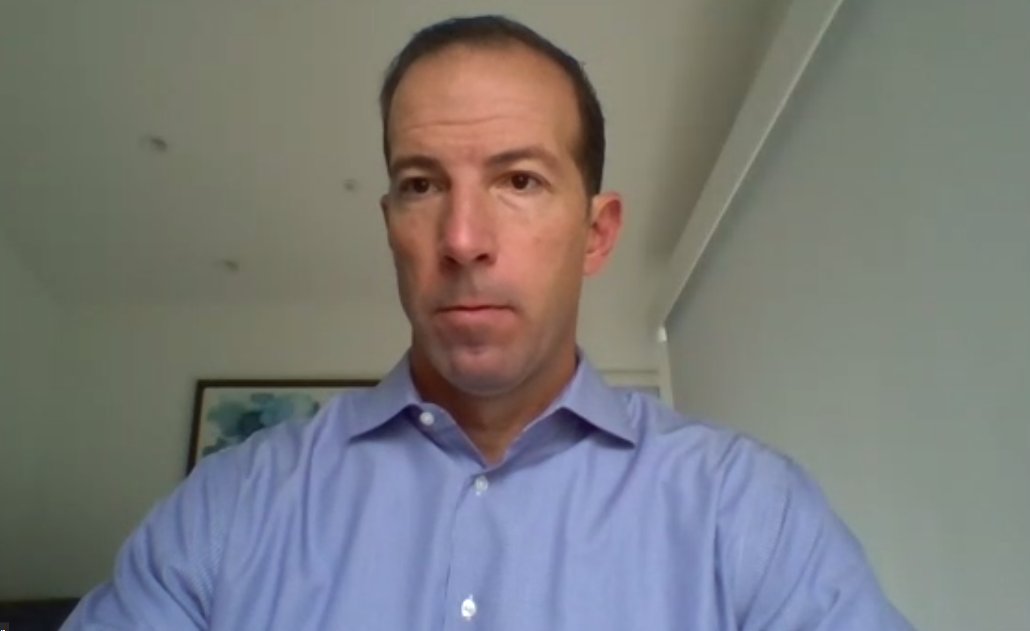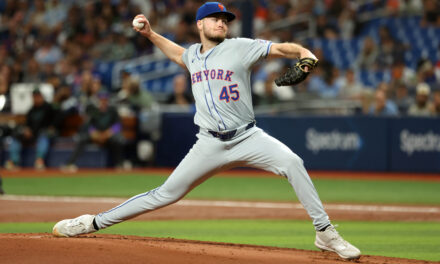
Mets General Manager Billy Eppler joined owner Steve Cohen and team president Sandy Alderson virtually from his home in California to meet and speak to the New York media for the first time.
Eppler joins the Mets after five years as Los Angeles Angels GM and having already spent a decade in New York with the Yankees organization.
Here are five takeaways from Eppler’s inaugural press conference:
1. Vetting Process
Billy Eppler was the only candidate the Mets offered the general manager job to. With the Mets’ own hiring history and what went on with the Angels during Eppler’s run as GM, there were questions as to how the Mets came to the decision to hire him.
“We’ve done our due diligence,” Alderson said. “It’s an organization, Billy is just one person in that organization. We vetted it in multiple ways. We spoke to a lot of people that were around the organization at that time, spoke to people within baseball, and we’re incredibly comfortable with Billy and his decision making, and his ethics, and his integrity.”
Eppler spoke about his hiring of ex-Mets manager Mickey Callaway.
“The industry in general, as Sandy and Steve have alluded to, has a vetting process that’ evolved and we have that greater resource because of it,” Eppler said. “In general, the Angel organization has been asked and answered for it. There’s not really anything more specific I can add today. Just that the industry vetting process has evolved.”
2. President is Possible
The Mets failed to hire a president of baseball operations for a second season and aren’t shutting the door on hiring one next season with Eppler remaining in the GM role.
“There’s an opportunity here, for a year at least, to establish yourself to grow to the point where we may not even do a search a year from now for an additional person or an additional person above the general manager role,” Alderson said. “We will have a year’s experience and Steve and I will take a look at the end of the season and make a decision about the direction he wants to go. But Billy has lots of opportunities here to establish himself to grow and have an impact on that decision a year from now.”
It’s been well reported that Eppler is close friends with Brewers president David Stearns who the Mets have tried to hire the last two seasons. Eppler also spent 10 years under Brian Cashman who could be available next offseason.
Alderson expects to take a step back with Eppler in place. He’ll be available to Eppler for any input but sees his role diminishing as the year goes on.
“I don’t expect to be heavily involved,” Alderson said.
3. Depth is Key
Eppler learned from experience with the Angels that the number one thing a team can have is depth. The Mets’ depth was certainly tested last season with lineups including Khalil Lee, Johneshwy Fargas, and James McCann at first base.
“The lack of depth made us dip into free agency to fill multiple holes on the roster,” Eppler said about his time with the Angels. “When you’re thin on that depth, and injuries ou sustain make it fall through the ice. We were having some success in ’17-18 and then we’d be slammed with two season ending injuries on the pitching staff and we couldn’t recover.”
With the Angels, Eppler pursued mainly short-term and lower valued deals in an effort to not double down on some of the contracts that affected the team years down the line when they were declining.
Cohen acknowledged that the Mets are already at about $185 million in payroll without any additions. He doesn’t see any immediate help in the farm system so it’s going to require spending. Eppler is going to be allowed to spend to be competitive.
4. Not Moving Top Prospects
Mets fans are still reeling over the trade by Brodie Van Wagenen to send Jarred Kelenic and Justin Dunn to the Seattle Mariners for Edwin Diaz and Robinson Cano. Doesn’t seem like that’s getting repeated by Eppler.
“There’s some strength in this farm system,” Eppler said. “As I looked at it there’s a number of guys that are top 100 prospects, but we don’t want to move that.”
The Mets would rather take bigger swings in free agency. Eppler wants to maximize their cumulative World Series odds over the long term.
“Make out decisions in service of maximizing and building those odds, and we build that over this several year time horizon and we create sustainability. Free agent spending can be born more out of opportunity than necessity so making those decisions is to enhance having the organizational discipline to avoid impulsive decisions that may give up large amounts of future World Series odds in exchange for some smaller gains right now,” Eppler said.
5. Changing Expectations
The Mets front office plans to re-evaluate what their players are doing offensively after a down year for many at the plate.
“The process that we’ll look at when evaluation our offense is what are the underlying process metrics that are kind of driving their performance and was there an element of unluckiness,” Eppler said. “Do we expect that the numbers on the back of the baseball card are the real numbers we expect that players contribute? There’s an element or framework for players that I tend to gravitate to and I don’t think this is really that unique or proprietary as it’s become kind of mainstay in baseball, but just to kind of get a little bit more granular on that. Looking for players that are they’re really good decision makers in the batter’s box. They understand their swing decisions, and if a ball’s over the white they’re ready to attack it. A little bit more of a patient, but aggressive approach at the same time.












